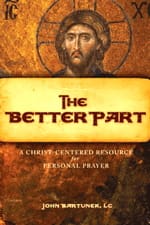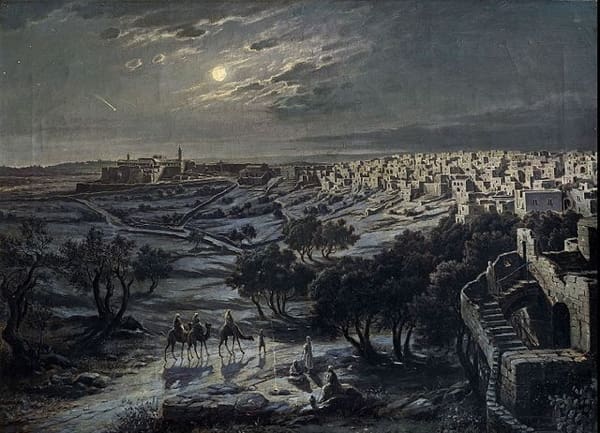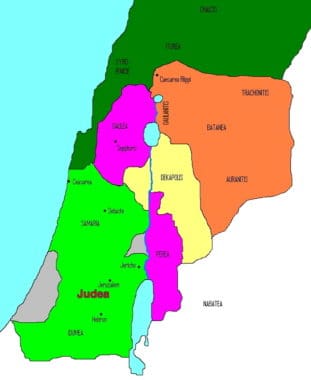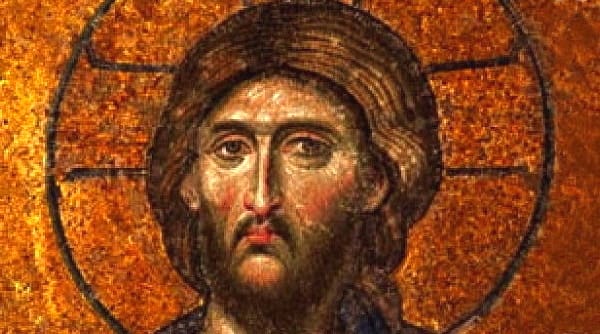“Christ abode for nine months in the tent of Mary’s womb; he abides until the consummation of the ages in the tent of the Church’s faith; he will abide for ever and ever in the knowledge and love of the faithful soul.” – Blessed Isaac of Stella
 Matthew 2:1-6 After Jesus had been born at Bethlehem in Judaea during the reign of King Herod, some wise men came to Jerusalem from the east. ‘Where is the infant king of the Jews?’ they asked. ‘‘We saw his star as it rose and have come to do him homage.’ When King Herod heard this he was perturbed, and so was the whole of Jerusalem. He called together all the chief priests and the scribes of the people, and enquired of them where the Christ was to be born. ‘At Bethlehem in Judaea,’ they told him ‘for this is what the prophet wrote: And you, Bethlehem, in the land of Judah, you are by no means least among the leaders of Judah, for out of you will come a leader who will shepherd my people Israel.’
Matthew 2:1-6 After Jesus had been born at Bethlehem in Judaea during the reign of King Herod, some wise men came to Jerusalem from the east. ‘Where is the infant king of the Jews?’ they asked. ‘‘We saw his star as it rose and have come to do him homage.’ When King Herod heard this he was perturbed, and so was the whole of Jerusalem. He called together all the chief priests and the scribes of the people, and enquired of them where the Christ was to be born. ‘At Bethlehem in Judaea,’ they told him ‘for this is what the prophet wrote: And you, Bethlehem, in the land of Judah, you are by no means least among the leaders of Judah, for out of you will come a leader who will shepherd my people Israel.’
Christ the Lord In ancient times Christians celebrated the mystery of Christmas for twelve consecutive days. They let loose their joy in a crescendo culminating on the solemnity of Epiphany, the manifestation (that’s what epiphany means) of the Lord to the Gentiles – the non-Jewish peoples represented by these wise men. The Jews always knew that their Messiah would be a mighty King, but they did not clearly know that his Kingship would extend to every nation, to all people. The moving scene of these wise men coming to do Christ homage focuses our attention on God’s plan for his New Covenant. This Covenant would bring all people into the ranks of his Chosen People, creating a new Israel bounded neither by geography nor by race, but only by the generosity of each individual human heart. With the coming of the wise men, the age of the Catholic – meaning “universal” – Church begins.

But the universality of his reign has some uncomfortable consequences. Christ is the Lord – not merely one among many, but the One. The universe is not a democracy, but a monarchy with only one rightful King, a King who is all-wise and all-good and who will never die. Herod recognized this; he immediately felt his own authority threatened by Christ’s arrival – here was one who had divine authority, whose right to rule was absolute, which meant that Herod would have to take second place (at best). Second place was repugnant to his enormous pride. So even though he recognized Christ’s lordship, he resisted it, he tried to do away with it.
Every human heart has a Herod lurking inside it. We are children of Adam and Eve, heirs of their disobedience, and part of us detests the idea of having to submit to a higher authority. For some, the revulsion is so strong that they convince themselves there is no God, or rather that the universe is a democracy, and so they can be their own gods. They do violence to their conscience just as Herod was soon to do violence to the infants of Bethlehem. They massacre part of their own rational nature, which longs to recognize a creator and do him homage (as the wise men did), just as Herod was to massacre a portion of his own people. Each human heart is a battlefield where Herod and the wise men vie for predominance. Will we kneel before the Lord and worship him, or will we vainly strike out to destroy him?
Christ the Teacher Most of the time, God doesn’t work in weird, inscrutable ways. He actually wants us to find him, to know him, to discover the full and vibrant life that he created us to live. He spent the whole Old Testament preparing Israel to welcome the Messiah; they even knew the city where the Messiah would be born! And when the moment came, God sent a sign to the Gentiles as well; he gave them a star to guide them to the very dwelling where the Savior could be found. And just to make sure that neither the Gentiles nor the Israelites would have any doubts, he arranged for them to confer together at the very time of the Messiah’s coming. What more could God have done to announce the Savior’s arrival? And yet, only a few believed.
He repeats this methodology with each one of us. He bombards us with signs of his love, of his presence, of his will – through the Scriptures, through the examples of thousands of saints, through volumes of instruction and explanation propagated by his Church, through the symbols and forms of the liturgy, through the living words of popes and pastors…. How easy he makes it for us to know him, to find him, to know how he would have us live! And yet, still, how few of us really believe, how often we doubt and disobey, how fervently we demand more and more signs. We are fortunate that this divine Teacher has infinite patience; without it, he would long ago have given up on such slow pupils.
Christ the Friend St. Matthew points out exactly where and when Christ was born, the actual place, the actual period of time: “at Bethlehem in Judea,  during the reign of King Herod.” We can find the place on maps today, and on ancient maps; we can travel there. We can find Herod’s name in today’s reference books, as well as in documents written two thousand years ago.
during the reign of King Herod.” We can find the place on maps today, and on ancient maps; we can travel there. We can find Herod’s name in today’s reference books, as well as in documents written two thousand years ago.
Christianity is not a mythic religion. The saving deeds of Jesus Christ do not take place in some pre-historical epoch that we mimic by empty reenactments. Our God came into the world and “dwelt among us,” and he continues to do the same. His Church and his sacraments are extensions of his desire to meet each one of us in the here-and-now of our lives, to befriend us as and where we are, and to walk with us along our earthly journey. Is that how we think of him? Is that how we live our faith? He is certainly hoping so, and he will help us – if we let him.
Christ in My Life
- You are the one Lord. I believe in you, and I want to follow you. You have every right over me, and I renew my commitment to obey you in all things. What a great gift you have given me! I know you, I am close to you, and I live through your grace. Dear Lord, never let me be separated from you, and help me to bring many others into your friendship…
- You have always reached out to all peoples through your Church. Only because of that did the faith make its way to my people, to my nation, and into my life. Thank you for coming to me; thank you for the Church. Guide and protect your Church, Lord, and make me an energetic, faithful, active member within her ranks…
- Why do I prefer extraordinary manifestations of your presence in my life and ignore so regularly the normal ways you speak to me – Church teaching, the everyday circumstances of my life, the Scriptures, the sacraments? You have given me so much, and you just keep on giving. Open my eyes, Lord, so that I can see you in all of your gifts, and thank you in them, and respond to your love with love…
PS: This is just one of 303 units of Fr. John’s fantastic book The Better Part. To learn more about The Better Part or to purchase in print, Kindle or iPhone editions, click here. Also, please help us get these resources to people who do not have the funds or ability to acquire them by clicking here.
Editor’s Note: This is the first part of the Gospel reflection this coming Sunday. You can read find Fr. John’s reflection on the second part of the Gospel by clicking here.
*
Art for this post on Matthew 2:1-6: Cover of The Better Part used with permission. Blick auf Betlehem bei Nacht (Overlooking Bethlehem at Night), Josef Langl (1843-1916), undated, PD-US published before January 1, 1923; Judea after Herod or Israel after Herod, Modified modification of a map from article “Marcus Ambibulus” from Dutch Wikipedia, Alorkezas, 11 February 2008, CCA-SA 3.0 Unported; both Wikimedia Commons.


